@mekevans.bsky.social @joeybernhardt.bsky.social @kyraclarkwolf.bsky.social @lispastore.bsky.social @iceageecologist.bsky.social
26.01.2026 17:10 — 👍 0 🔁 0 💬 0 📌 0@mekevans.bsky.social @joeybernhardt.bsky.social @kyraclarkwolf.bsky.social @lispastore.bsky.social @iceageecologist.bsky.social
26.01.2026 17:10 — 👍 0 🔁 0 💬 0 📌 0
Species shift their ranges in response to climate change, but many can't keep up. The resulting "community-climate disequilibrium" can impair ecosystem function and cause counterintuitive dynamics, like short-term gain but long-term loss onlinelibrary.wiley.com/doi/10.1111/...
26.01.2026 17:09 — 👍 60 🔁 31 💬 1 📌 1
New paper out on the dangers of using patterns across spatial climate gradients to predict what will happen with changing climate. That includes species distribution modeling. Space-for-time substitution can be misleading in sign, not just the magnitude of effects.
www.nature.com/articles/s41...

Space-for-time substitution is most problematic when forecasting near-term ecological responses that lag behind climate change. It assumes equilibrium (rapid ecological responses) and strong climate causality (ignoring confounders). www.nature.com/articles/s41... @mekevans.bsky.social
30.07.2025 19:18 — 👍 11 🔁 2 💬 0 📌 0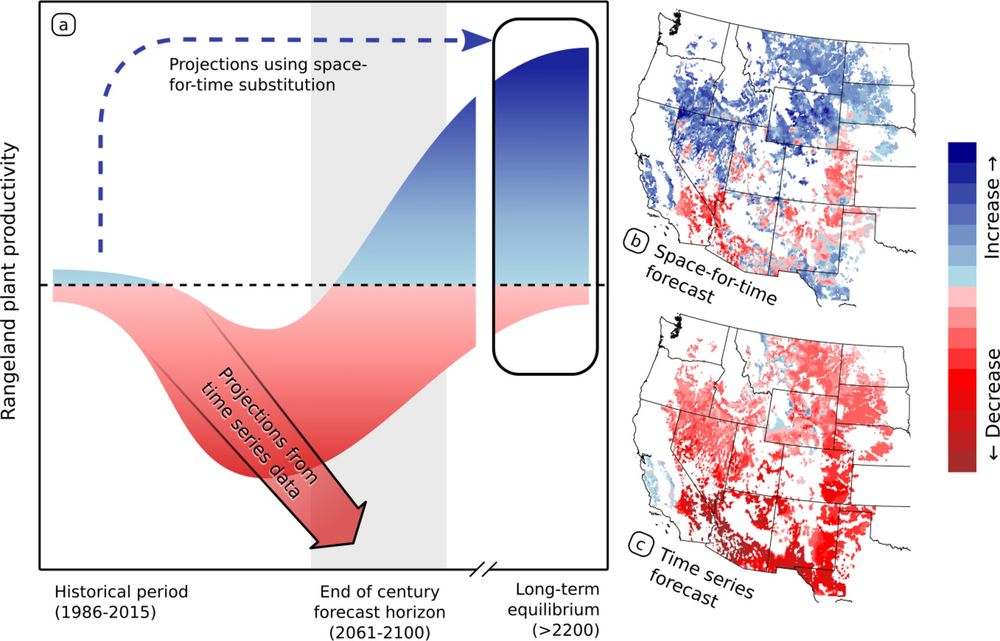
A synthetic paper about fast vs. slow responses of ecological systems to changing climate, explaining how and why those responses can shift (even in sign) over time. Examples across scales and subdiscplines (population genetics, ecosystem ecology). besjournals.onlinelibrary.wiley.com/doi/10.1111/...
25.06.2025 17:31 — 👍 38 🔁 13 💬 0 📌 0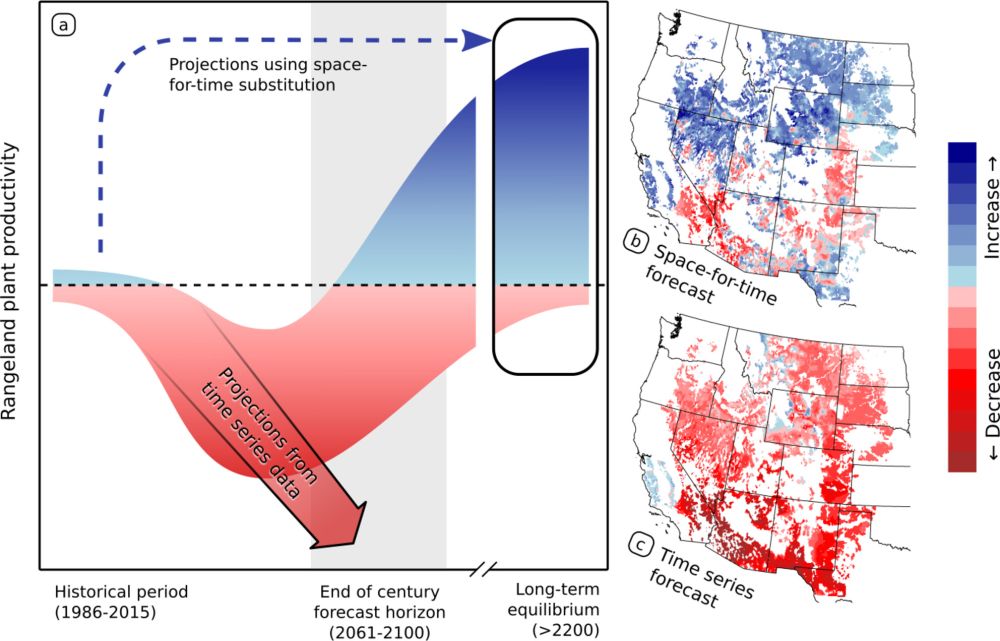
I’m very excited to share a paper from an incredible team of evolutionary biologists, community ecologists, paleoecologists, social scientists, and biogeochemists. “Ecological acclimation” unites processes that take minutes to centuries: besjournals.onlinelibrary.wiley.com/doi/10.1111/...
26.06.2025 20:05 — 👍 26 🔁 9 💬 0 📌 4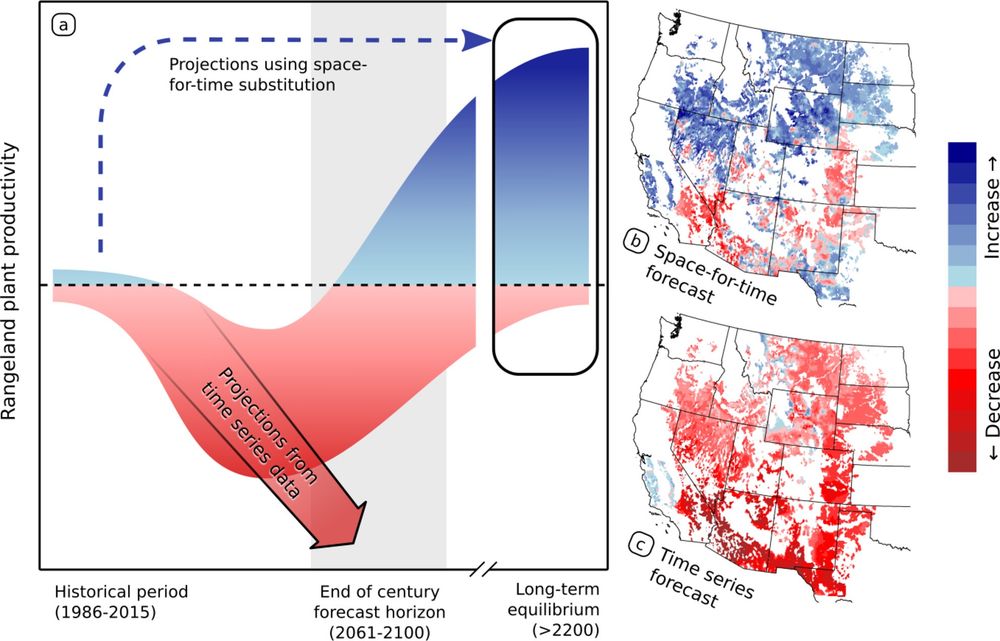
New paper led by @mishastemkovski.bsky.social Ecological acclimation: A framework to integrate fast and slow responses to climate change besjournals.onlinelibrary.wiley.com/doi/10.1111/...
24.06.2025 13:48 — 👍 2 🔁 1 💬 0 📌 0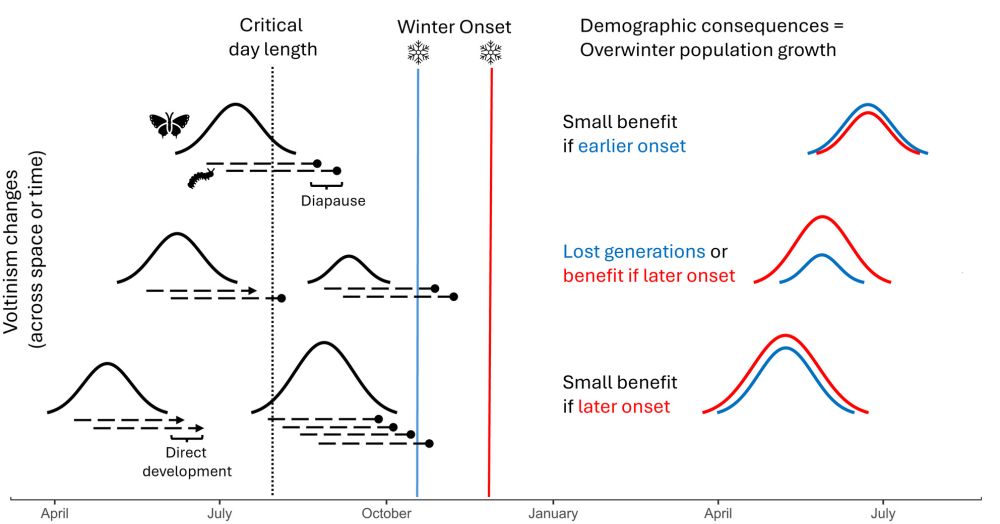
New paper with Erica Henry & @nickhaddad.bsky.social
Q: What happens when butterflies, responding to climate warming, attempt an extra generation as summers get longer?
A: Long-term monitoring shows overwinter population growth increases! 🧪🦋🐛https://onlinelibrary.wiley.com/doi/10.1111/ele.70018
They're truly heartless.
28.02.2025 20:45 — 👍 1 🔁 0 💬 0 📌 0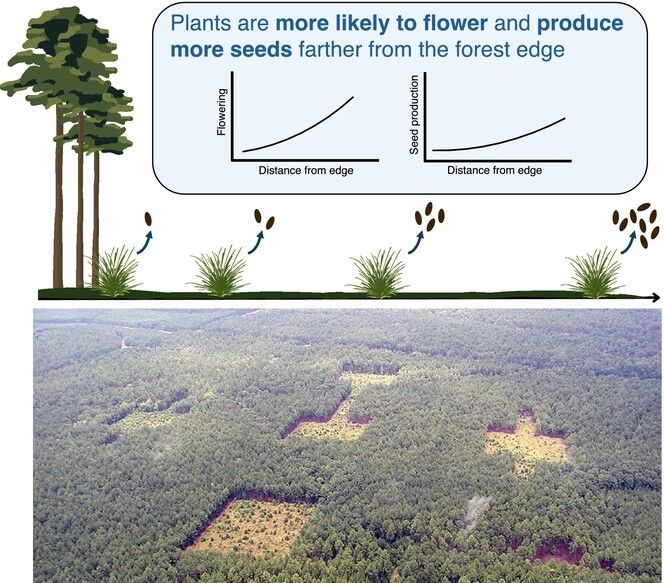
New paper led by superstar grad student Katherine Hulting, from the SRS Fragmentation Experiment
Across 5 species & 1000s of plants, habitat edges decrease plant reproductive output by suppressing flowering, but not by changing pollination rates
besjournals.onlinelibrary.wiley.com/doi/10.1111/...